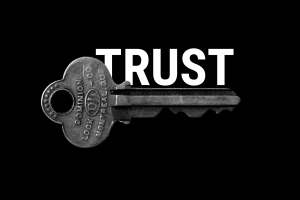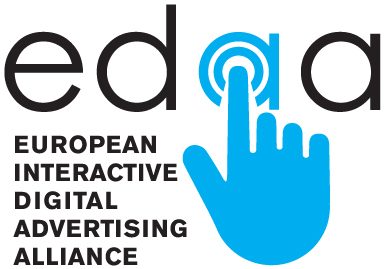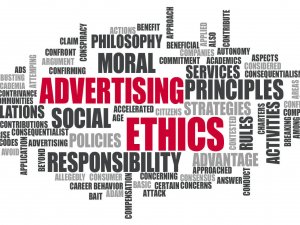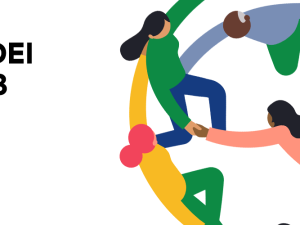a blog piece by Alex Macarescu
 Online advertising can be polarising. Whether it’s users and industry, trade associations and consumer associations, or regulators and businesses operating in this space, finding two entities which are at odds with one another in the digital advertising ecosystem is certainly a facile task. What can appear perplexing is the fact that the end-goal for all these actors seems to be the same: a thriving environment which benefits both consumers and industry, without infringing on the privacy of the former or negatively impacting the business models of the latter.
Online advertising can be polarising. Whether it’s users and industry, trade associations and consumer associations, or regulators and businesses operating in this space, finding two entities which are at odds with one another in the digital advertising ecosystem is certainly a facile task. What can appear perplexing is the fact that the end-goal for all these actors seems to be the same: a thriving environment which benefits both consumers and industry, without infringing on the privacy of the former or negatively impacting the business models of the latter.
Bridging this gap between consumer and industry is the main proposition of the EDAA Self-Regulatory Programme and the YourOnlineChoices.eu platform. What EDAA is aiming to achieve is not to address one group or the other in isolation, but rather tighten the interaction between the two. Online advertising is a symbiotic relation between end-users and industry. So how do you go about strengthening this relationship and preventing it from devolving into a parasitic bond, where either the consumer has access to high quality content at absolutely no cost, or some of the industry taking advantage of end-users’ privacy? You empower the user and require trustworthiness from corporate entities to enhance transparency of the interactions between the two. Certainly, at first glance this seems sheer naiveté; although it is not, as with everything else there is some truth to the perception challenges that any project aiming to address the issue of online privacy, transparency, and trust has to tackle.
The consumers – a matter of trust
It’s quite the undertaking to convince end-users, be they tech-savvy or lay-persons when it comes to online advertising, that not all industry is driven by nefarious purposes, that their data is safe more often than not, and that the content they enjoy online for free has production costs. Oftentimes, initiatives aim to achieve this by focusing on increasingly harsher regulations for the industry. That is tantamount to preventing cattle theft by sacrificing all the cattle. What EDAA has done is to look at empowering the user, rather than launching a crusade against the industry. First and foremost, the YourOnlineChoices platform is a user-centric initiative which provides consumers – through the AdChoices Icon – with a considerable amount of information on online advertising in general and data-driven advertising in particular, which in turn will ideally enable them to make informed decisions. These range from instructional videos, FAQs all the way to tips and a glossary. They are designed to educate the uninformed user and to ensure that any decision they make while browsing is as sound as possible.
After a four-year hiatus, EDAA alongside Ipsos Mori ran a study in 2020 in an attempt to understand how consumers are interacting with the Icon and whether the information and option it provides has any effect on the behaviour and attitudes of end-users towards data-driven advertising. The results of the 2021 European Advertising Consumer Research Report are more than encouraging. Across all ten surveyed countries recognition of, and engagement with, the AdChoices Icon has increased substantially. What this directly translates into is that more and more users are informed about data-driven advertising (or OBA) and the options they have at their disposal to enhance the transparency of the ecosystem, and therefore their trust in it. Because trust is paramount. Without trust in what online actors do with their data, consumers may simply resort to end-all solutions such as ad blockers. This goes without saying: most of the industry is guided by sound principles and acts with morality. When most actors are acting in good faith it is then perhaps more reasonable to use consumer trust as a scalpel to excise the offending entities rather than blanket measures to act as a sledgehammer pulverising the entire body.
The industry – unsurprisingly, also a matter of trust
What the AdChoices Icon also provides through its association with the YourOnlineChoices platform is a tool that enables users to simply turn off – or back on – interest-based advertising from participating companies. It’s difficult to not understate the level of trust that companies have in the Programme to enroll in it and provide users with this option. And yet the most relevant players on the market are part of the Self-Regulatory Programme. Why? Because trust is key. Trust in the user to make an informed decision, trust in the company to respect said decision. After all, the very essence of the Self-Regulatory initiative is trust (with compliance and enforcement back-stops) that everyone will do the right thing. That is not always a sentiment shared by all stakeholders in the field, with cynicism, apprehension, and circumspection engendering over-regulation and measures that ultimately impact the ecosystem as a whole – and not always for the better.
Does this work though? Does providing users with the YourOnlineChoices platform and the accompanying Icon do anything positive for the industry? You bet your ad spend dollar it does! The study we recently published shows undeniably that users have more trust in brands and websites that display the AdChoices Icon. Not only that, but they are more favourable towards online behavioural advertising thanks to the Icon and the associated YOC platform, and feel that the transparency of the entire ecosystem is enhanced thanks to it. As an organisation we are thrilled with the results of this study. The picture painted in stark colours here is that companies trusting the Programme subsequently benefit from increased trust from end-users; and that’s a beautiful thing to behold.
In lieu of a conclusion, let me just say this: if you’re an end-user, not all online companies are bad. Head on over to the YourOnlineChoices platform and see why. If you’re an online company, perhaps you should review the findings of our latest report and we’re confident you’ll see the value in transparency and the trust it fosters. Trust is key.






